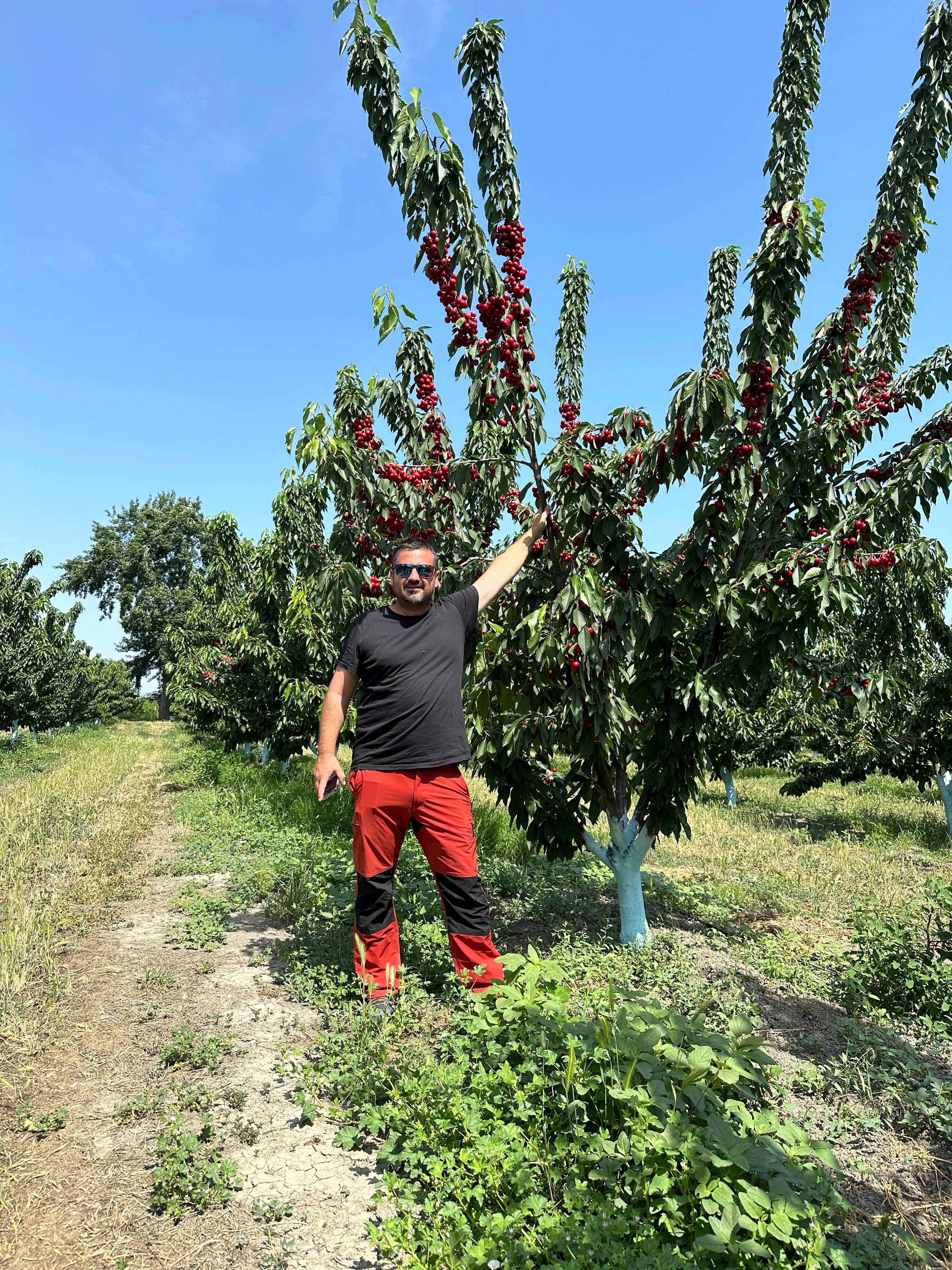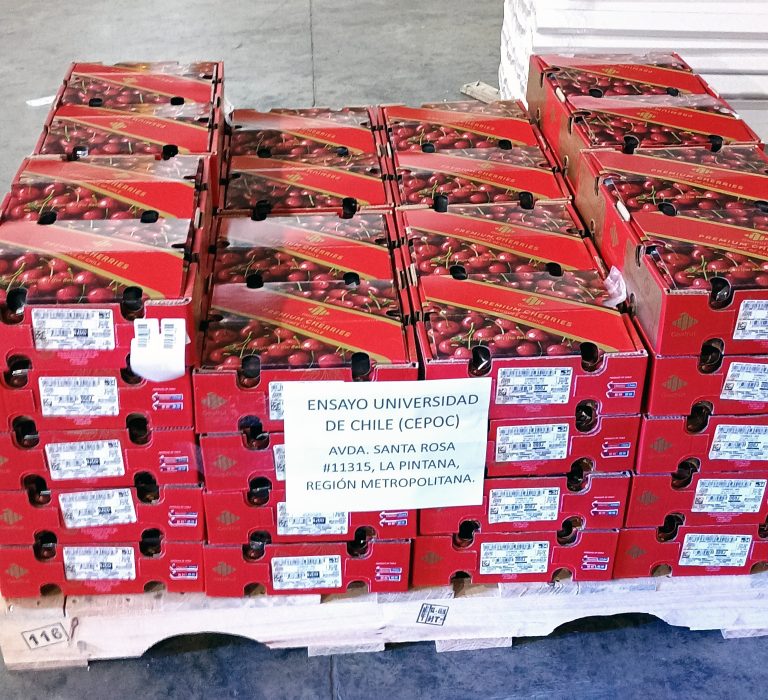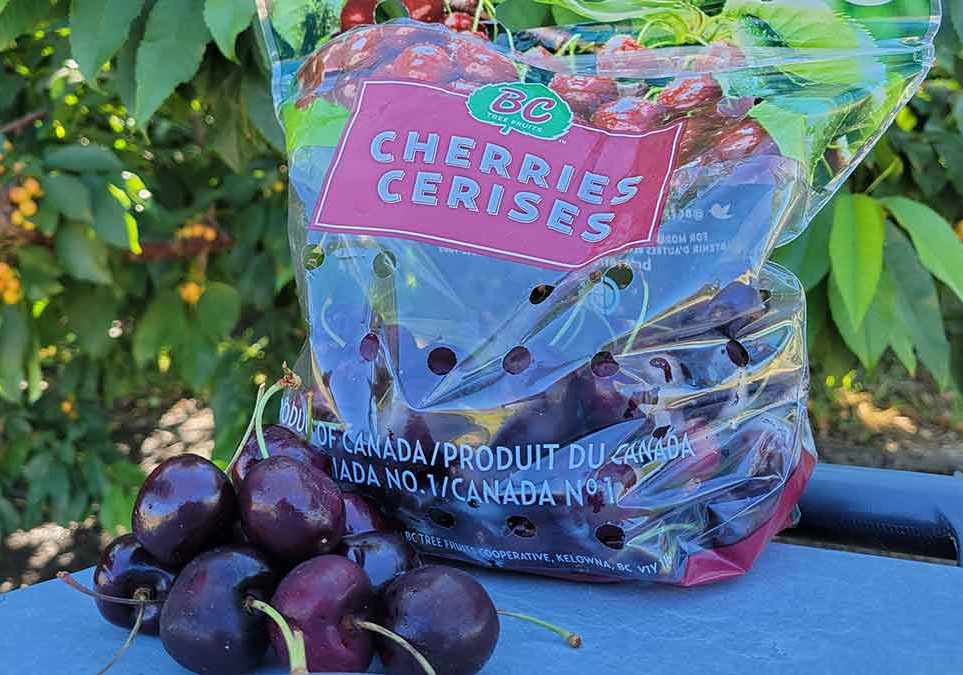Javier de Pablo is a Spanish agricultural engineer with twenty years of experience in cherry cultivation under controlled greenhouse conditions. From the beginning, his commitment has been pioneering and, in addition to allowing him to produce cherries of the highest quality, it has opened doors to numerous phytosanitary and fertilization companies, breeders, nurseries, and public research centers seeking comprehensive solutions for developing new products, practices, or varieties in the sector.
To channel this fruitful relationship with his clients, Javier de Pablo has just created the “Finca Albalate” brand, with a renewed corporate design and a portfolio that includes all the agronomic services he already provides, supported by the human and material resources he has available.
 Image 1: Greenhouse area.
Image 1: Greenhouse area.
The team led by Javier de Pablo includes, among others, Santiago Achón, the farm's production manager with 25 years of experience in controlling, managing, and harvesting fruit trees and an expert in tree multiplication through shield budding, whip grafting, and English grafting techniques. Idoia Remón holds a degree in Biotechnology and specializes in quality analysis and phenological monitoring of trials and varieties.
Finca Albalate (Aragon, Spain) has a unique infrastructure in the cherry sector for conducting trials:
- Multicapillary plot (2 hectares): a single environment. It has lateral and zenithal windows.
- Individual tunnels (4 hectares): divided into 35 mini-greenhouses.
- Outdoor cherry trees (34 hectares): Brooks, Prime Giant, Coral Champagne, and several of the latest varieties in the current panorama.
 Image 2: Javier de Pablo.
Image 2: Javier de Pablo.
Thanks to these facilities, “Finca Albalate” conducts various types of agronomic trials tailored to the needs of each of its clients:
- Varieties and rootstocks: possibility of conducting trials outdoors or in greenhouses for breeders and nurseries. Combination of varieties with different rootstocks. Production of cherries in pots.
- Fertilization: application, analysis, and study of different fertilizers for crust formation, color, hardness, sugar content, or earliness.
- Phytosanitary tests.
- Phenological controls: weekly monitoring of the productive state of the cherry tree, leaves, fruit size, and hardness.
Recently, some of this work has also been carried out on other external farms belonging to their clients, located in different areas of Spain, Azerbaijan, or Georgia: a clear example is the tests carried out with the company SAS, where the homogenization of flower products is being tested.
As part of the company's international expansion, Javier de Pablo provides consulting services in other countries worldwide, such as Portugal, Uzbekistan, and, more recently, Chile, as a global expert in greenhouse cherry cultivation. At this point, he covers the entire cultivation cycle, starting from the design of the farm itself:
- In-depth study of soil and climate.
- Soil analysis: pH, nutrients, and texture.
- Variety selection.
- Advice on choosing materials and designing greenhouses.
 Image 3: Intensive greenhouses.
Image 3: Intensive greenhouses.
In addition to this initial work, Javier de Pablo also offers personalized support in agronomic management:
- Implementation and application of efficient irrigation.
- Pruning guidance.
- Monitoring and control of flowering and fruit set.
- Pest and disease control strategies.
- Technical assistance throughout the year.
- Technical assistance throughout the entire cultivation process.
- Implementation of training and education programs.
Finca Albalate is a new brand for the consulting services and agronomic work carried out by Javier de Pablo and his team of technicians and experts. His contact is javierdepablo@fincaalbalate.com
Source: Finca Albalate
Image: Finca Albalate
Cherry Times - All rights reserved













